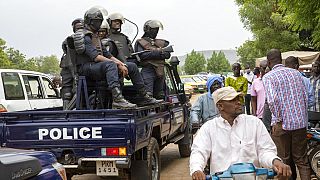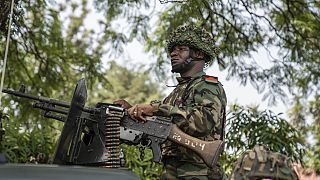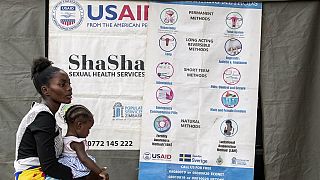Zimbabwe
Hardly six months after president Emmerson Mnangagwa was elected in a disputed election, promising to revive the economy and break with the Mugabe era, a national strike this week has further dented the hopes of Zimbabweans.
Dollar shortages are battering the economy, rocketing inflation is destroying the value of citizens’ savings and the government is reacting forcefully to crush dissent.
The Zimbabwe Congress of Trade Unions (ZCTU) on Sunday called for a three-day national stayaway and shutdown campaign, urging citizens to shun schools, banks and their businesses from Monday to Wednesday.
ZCTU capitalised on the anger and frustration that followed Mnangagwa’s announcement that fuel prices would be more than doubled to tackle a shortfall caused by increased demand and “rampant” illegal trading.
Mnangagwa ‘deeply saddened’ by protests
After three days of an often violent crackdown by the police on protesting Zimbabweans, Mnangagwa addressed the nation through his Facebook page.
“Resolving Zimbabwe’s economic challenges is a monumental task, and while it may not always feel that way, we are moving in the right direction,” said Mnangagwa, who is on a business trip in Eastern Europe.
‘‘Over the past two days, as I have been in Russia working on economic agreements that will give our economy a much needed boost, I have been deeply saddened by events in our beloved homeland.’‘
These protests, coming only five months after six people were killed in post-election demonstrations last August, pose a challenge for Mnangagwa who is till struggling to demonstrate reform in the government and ruling ZANU-PF party, after he replaced long-time leader Robert Mugabe following a coup in November 2017.
The protests in numbers
- 3 days of a national strike (ZCTU)
- 3 people died during protests (Police)
- 600 people arrested (State broadcaster ZBC)
- 172 people treated for injuries (Human rights doctors, ZADHR)
- 68 treated for gunshot wounds (ZADHR)
The crackdown on protesters comes comes nearly a month after a commission of inquiry found that the military used ‘disproportionate and unjustified’ force to quell post-election protests.
READ MORE: How fuel price hike protests unfoled in ZimbabweWhat next after protests?
Some businesses and banks re-opened in the capital but others remained closed as calm returned on Thursday, a day after the three-day stay-at-home strike called by the main labour union ended.
At a branch owned by Stanbic Bank, the banking halls were empty with no customers and workers. An official said workers did not report for duty because they could not find public transport. There were very few public taxis on the road, leaving many people stranded.
Media platforms like Whatsapp, Facebook and Twitter remained blocked because of a government order, leading to accusations that it wanted to prevent images of heavy-handedness from being broadcast around the world.
“Things are beginning to normalise now so going to work is the only option otherwise our families will suffer,” said James Vambe, a trader in Harare.
Evan Mawarire, a Harare pastor who rose to prominence as a Mugabe critic and led a national protest shutdown in 2016, will on Thursday appear in court to face public violence charges. Courts dismissed two similar charges against him in 2017 for lack of evidence.












11:05
New era of sovereignty in Mali's gold sector [Business Africa]
01:37
UN agricultural fund calls for adaptation financing for small-scale farmers
01:42
Gasoline truck overturns and explodes near Uganda’s capital, killing 11
01:00
Mass burial held for victims of tanker explosion in northern Nigeria
Go to video
IOC sets election timetable to succeed Thomas Bach
01:40
Young Tunisians disillusioned by economy, pace of change